Zakir Hussain (1951-2024) | ‘A miracle never dies’

Zakir Hussain in his bedroom overlooking the Arabian Sea, at Simla House, Napean Sea Road, Mumbai.
| Photo Credit: Copyright: Dayanita Singh
Dear Guruji,
On Sunday night, as I watched the full moon rise, I thought to myself that the next Guru Purnima I had to spend the day with you and photograph you with all your students. It would have been 45 years since I met you. Just two weeks ago, while I was talking about your influence on my life — showing the audience in the Indian Museum in Kolkata the Zakir Hussain maquette wall — I said, “I will continue to photograph Zakir until I die.” I told them how you had said at the release of the maquette, “I play the tabla and she plays the photograph.”
And now, all your life lessons that I carry within me, will guide me. You taught me how to learn and to never stop learning. You taught me rigour and that single-minded focus: to learn one’s medium like the back of one’s hand, you said, and only then attempt to play with it. I did not realise at the time as we rode around India in the musicians’ bus, that annual road trip of three weeks, what a privileged world you had led me into. I was the kid on the bus, the young woman with a camera, and because of your introduction everyone adopted and indulged me.
You always said riyaaz has to be in your every breath. I was lucky to witness this in your life, even when the tabla was not in front of you and you were still building new bols in your head. You made the tabla speak in unimaginable ways. When I first photographed you, the tabla was an accompanying instrument. I watched you turn it into a solo instrument and so much more. And yet when you had to accompany someone, you slipped right into being the accompanist.
I saw you engage with all kinds of people, making each person feel “seen” and special, from the security guard to the most senior musician. Yet when VIPs would interfere with the performance, you asked them to finish what they had to do and then you would play. You charmed everyone, even those who had not heard your music. Like the chaat wala in Delhi’s old Bengali Market or the waiter at Karim’s who recited the menu in different talas for you and abbaji (Ustad Allarakha Khan). I wish I had also learned your incredible humility, your ability to just walk away from anything unsavoury, to never make anyone feel small. And equally, how you found humour in every situation.
Your “kaun hain” resounds in my ears, as you would greet people in the green room. In a way, you led me into the green room of life — the tayari, the preparation that goes into each performance, each work.
I feel completely shattered now but I am sitting at the press and trying to print a catalogue for my Bombay exhibition. This, too, I learned from you — to carry on. The only time I saw you shaken was when abbaji passed, and how difficult the first concert after his passing was. I do not know how I will enter the room in Kolkata’s Indian Museum, which is filled with your photographs as part of my show at the Bengal Biennale. I had hoped you would visit and that I could thank you in person for the invaluable world you opened to me. What you showed me was the commitment to the life of an artist, the unending enquiry of one’s medium.
I am sorry we collectively were unable to manifest the miracle of your survival. But then you are a miracle and a miracle never dies.
Your unlikely student,
— Dayanita Singh
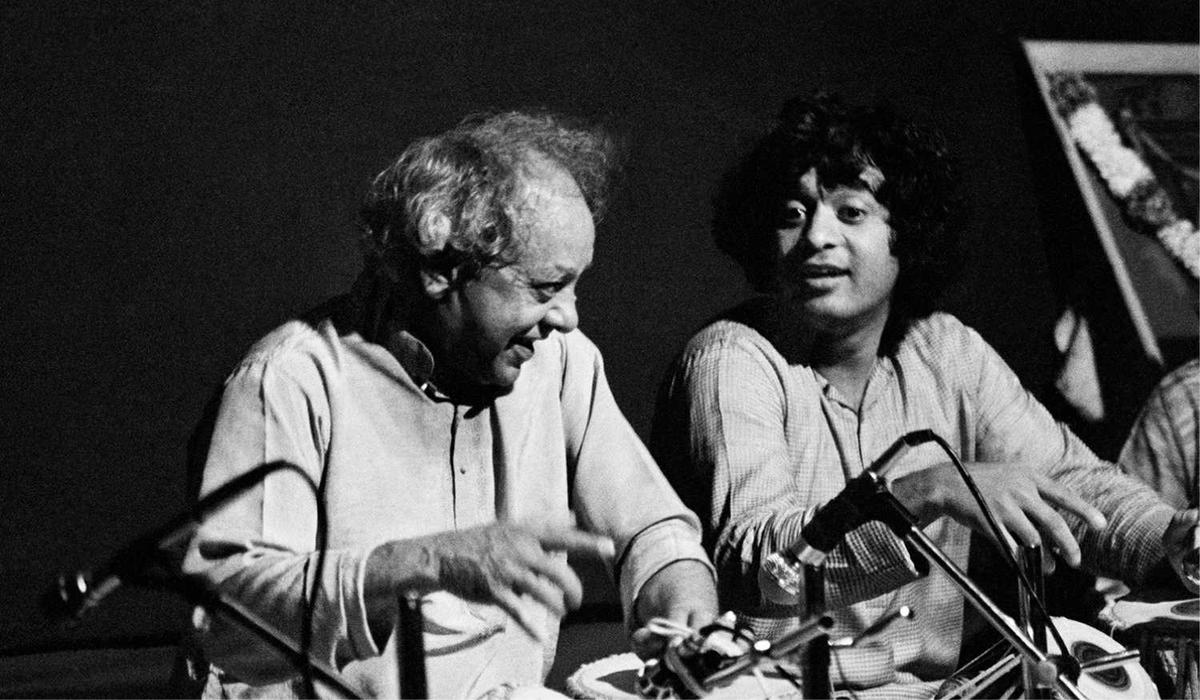
When my guru went to his guru, they both put their hands on the tabla and they were exactly the same. For me, a dream come true.
| Photo Credit:
Copyright: Dayanita Singh
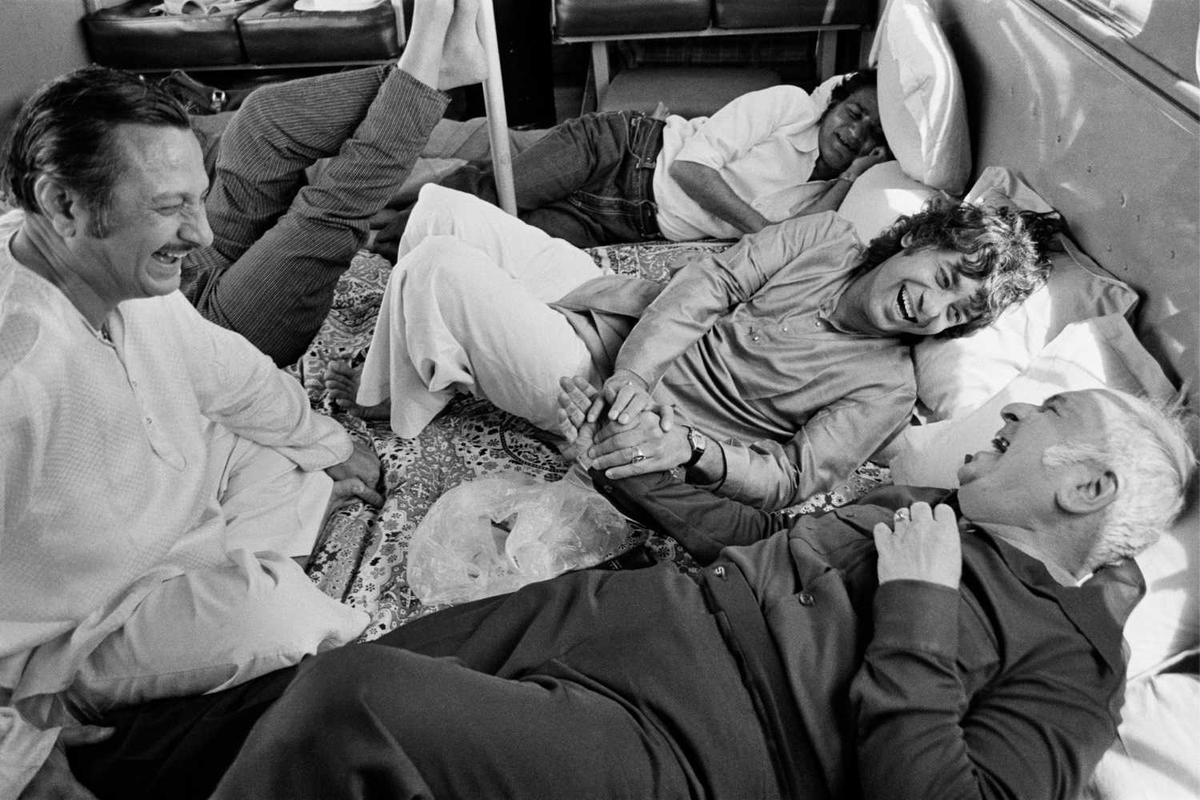
The musicians’ bus was conceived by Pt. Vijay Kichlu (left) director of the Sangeet Research academy. Zakir sharing jokes with him and Pt. V.G. Jog and Pt. Jitender Prasad.
| Photo Credit:
Copyright: Dayanita Singh
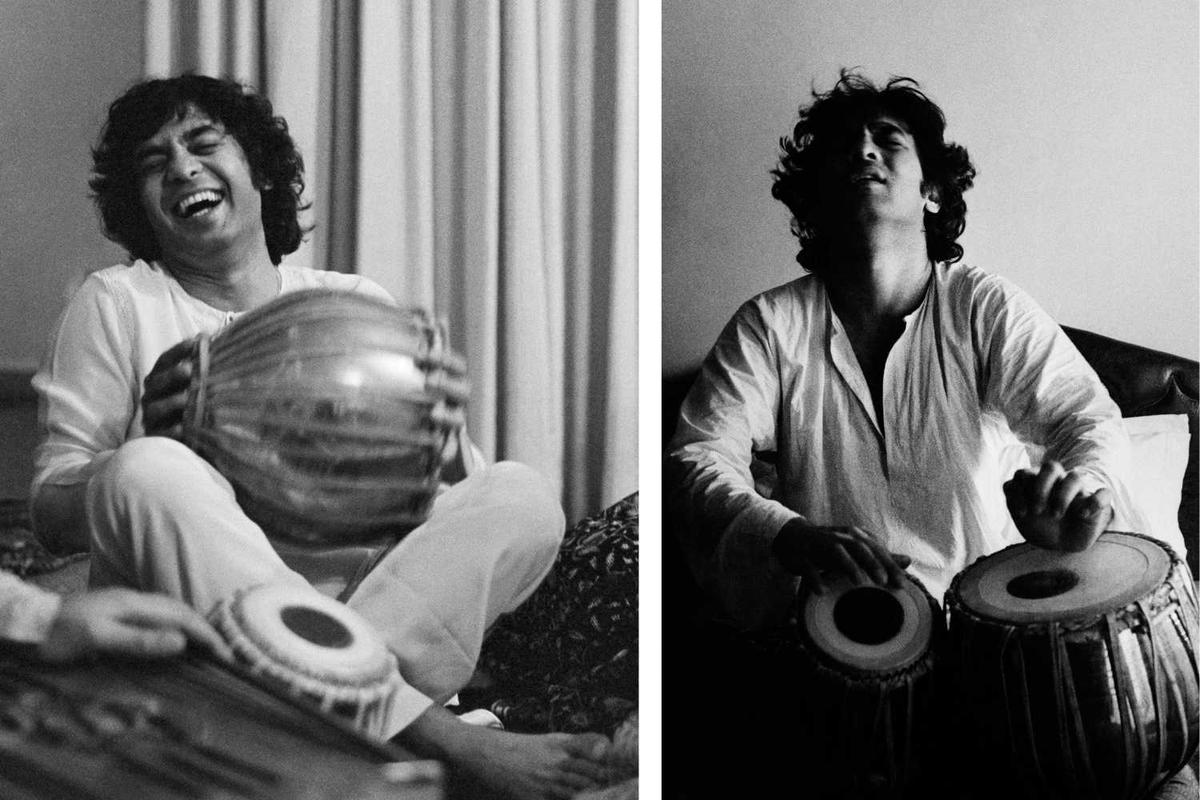
(L-R) Zakir at the house of his dearest friends Pt. Shivkumar Sharma and Manorama ji; when riyaaz is in your breath, in each exhale and inhale, then that is true riyaaz, Zakir always said.
| Photo Credit:
Copyright: Dayanita Singh

While travelling on the musicians’ bus, we would often stop and have a picnic. Here Zakir is batting with the lid of a pressure cooker. Anand Gopal is fielding and Shivkumar Sharma is sitting to the right; (right) Zakir loved to play cricket and here he is in Goa, trying to get all the musicians to play with him.
| Photo Credit:
Copyright: Dayanita Singh
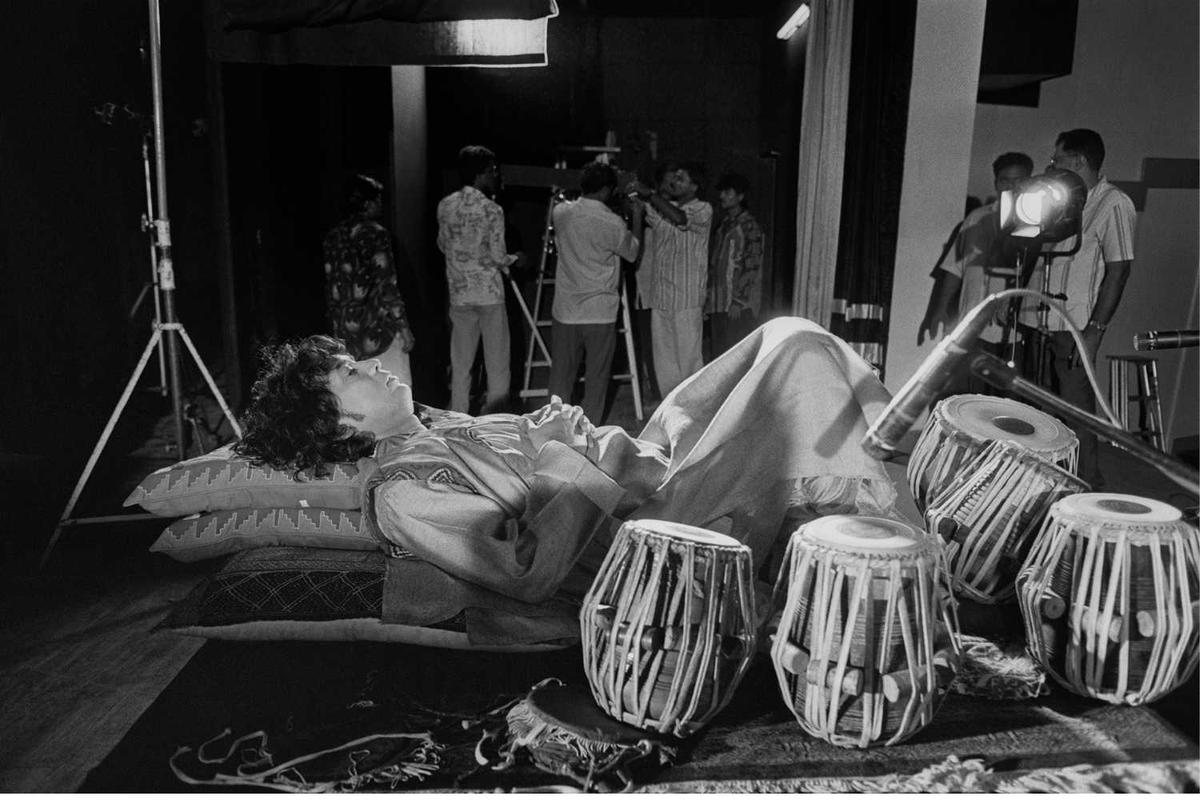
Zakir resting between the ‘Wah Taj’ film shooting. He had this amazing ability to sleep anywhere.
| Photo Credit:
Copyright: Dayanita Singh

Zakir loved to come home and meet my mother who, of course, doted on him and made him makki ki roti and saag. She would attend all his concerts and sit in the first row.
| Photo Credit:
Copyright: Dayanita Singh
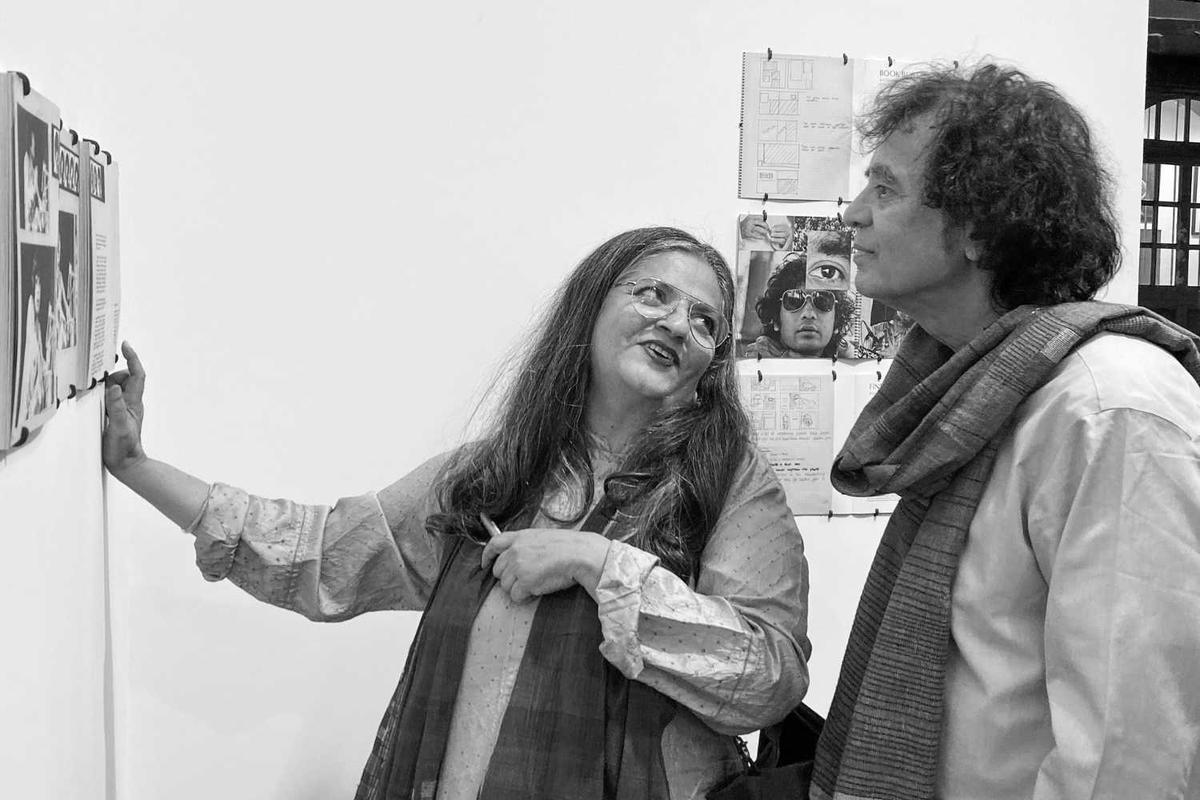
And finally that magical evening at Artisans’ gallery in Mumbai, when Zakir launched the Zakir Hussain maquette and we displayed it on the walls.
| Photo Credit:
Copyright: Dayanita Singh
Singh started her career by photographing Zakir Hussain. Her first book was on the tabla virtuoso and published in 1986. She received the prestigious Hasselblad Award in 2022, the same year Zakir Hussain was awarded the Kyoto Prize.
Published – December 19, 2024 11:47 am IST
Visit: Valley Vision News





